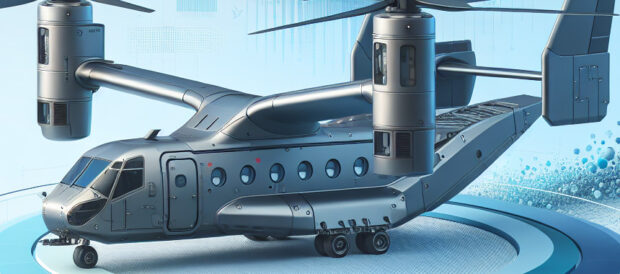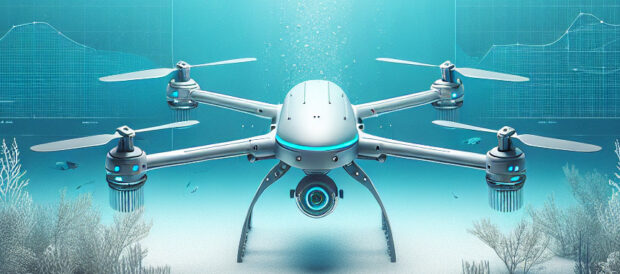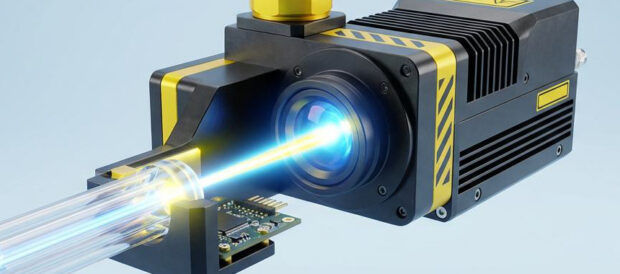
Space Technologies Report
: Analysis on the Market, Trends, and TechnologiesThe space technologies market shows concentrated momentum and measurable scale: total funding across the topic exceeds $442.56 billion and the sector supports tens of thousands of active firms and patents, signaling that capital and IP density will shape commercial winners and policy responses in the next decade Precedence Research.
89 days ago, we last updated this report. Notice something that’s not right? Let’s fix it together.
Topic Dominance Index of Space Technologies
To gauge the influence of Space Technologies within the technological landscape, the Dominance Index analyzes trends from published articles, newly established companies, and global search activity
Key Activities and Applications
- Satellite manufacture and constellation deployment — mass-produced small satellites and modular bus platforms reduce unit cost and time-to-orbit and enable commercial LEO services and dense imaging/messaging constellations.
- On-orbit servicing, assembly and manufacturing (OSAM) — refueling, repair, and assembly in space extend asset lifetime and create recurring service revenues versus one-off satellite sales.
- Space situational awareness (SSA) and debris management — real-time tracking, cataloguing, and remediation services address collision risk from expanding constellations and generate persistent subscription-style revenue streams marketresearch - Global SSA Market Overview.
- Advanced Earth observation and geospatial analytics — high-cadence optical and SAR data plus AI analytics enable commercial products in agriculture, infrastructure monitoring, insurance and climate services.
- Propulsion and green mobility — electric, hybrid and non-toxic propulsion developments increase maneuverability for collision avoidance, station keeping and OSAM missions.
- Laser and optical communications — growing demand for high-throughput, low-latency links pushes investment in space-to-space and space-to-ground optical terminals.
Emergent Trends and Core Insights
- AI and autonomy move from adjunct to foundational capability: AI now optimizes constellation design, drives autonomy for robotic servicing, and scales data-product extraction; firms that package AI as an operational capability capture higher-margin services.
- Market shifting from point solutions to integrated platforms: buyers favor providers that combine hardware, in-orbit operations, data analytics and regulatory compliance into recurring-revenue platforms, raising switching costs for customers.
- Space traffic management and regulatory frameworks will drive demand for certified SSA and collision-avoidance services as mega-constellations scale: projected launches (tens of thousands of spacecraft in the next decade) make STM an operational necessity and a commercial opportunity marketresearch - Space Traffic Management.
- Capital concentration into mission-enabling subsectors: investors prioritize OSAM, laser communications, propulsion and SSA; venture flows in 2024 approached record levels, validating business models that replace one-time sales with services Web Search: Burda Principal Investments.
- Sustainability and green operations affect procurement and policy: green propellants, debris remediation and standards for end-of-life are becoming procurement criteria for government and large commercial operators.
Technologies and Methodologies
- AI/ML pipelines and onboard edge compute for real-time data reduction and autonomous decisioning — required to make high-volume constellations commercially feasible and to enable autonomous OSAM researchandmarkets - AI in Space Exploration.
- High-fidelity simulation and digital twins — mission assurance through ground-based full-physics simulation shortens development cycles and lowers mission risk for complex rendezvous and servicing tasks.
- Electric and green propulsion (Hall thrusters, ABEP, water-based propellants) — trades increased delta-v efficiency for smaller mass and longer in-orbit life; critical where maneuverability and rendezvous capability matter marketresearch - Space Propulsion.
- In-space additive manufacturing and robotic assembly — enables modular, scalable space infrastructure and reduces dependence on Earth supply chains for large structures and SBSP (space-based solar power) demonstrations marketresearch - Space Situational Awareness.
- Laser/optical comms and phased-array electronically steerable antennas — provide the bandwidth and pointing agility required for real-time relay and deep-space links St2C GmbH.
Space Technologies Funding
A total of 6.3K Space Technologies companies have received funding.
Overall, Space Technologies companies have raised $541.1B.
Companies within the Space Technologies domain have secured capital from 21.0K funding rounds.
The chart shows the funding trendline of Space Technologies companies over the last 5 years
Space Technologies Companies
- Translunar Exports and Servicing — early-stage OSAM specialist developing an autonomous computer-vision module that offloads detection, classification and pose estimation tasks to in-orbit servicers; the product targets satellite operators and defense customers that need low-latency situational awareness and simplified rendezvous stacks.
- Space Resource Technologies — supplies high-fidelity lunar and Martian regolith simulants used by agencies and companies to validate ISRU hardware and processes; that upstream capability shortens mission qualification cycles for in-situ resource projects and supports government-grade research pipelines.
- Launchspace Technologies Corporation — positions itself as an SDA/SSA provider plus active debris remediation through sensor constellations and debris impact pads (DIPs); the business model targets recurring subscriptions from national security and commercial constellation operators seeking continuous traffic-management services.
- VXB Aerospace — builds a generative design engine that accelerates electromagnetic and propulsion hardware design by orders of magnitude, compressing engineering cycles and lowering production cost for propulsion subsystems and RF hardware.
- Asynchronics — provides open simulation and digital-twin tooling focused on cyberphysical systems; their platform supports verification of complex multi-agent behaviors (constellations, swarms, OSAM workflows) and reduces integration risk for systems integrators.
Get detailed analytics and profiles on 49.5K companies driving change in Space Technologies, enabling you to make informed strategic decisions.
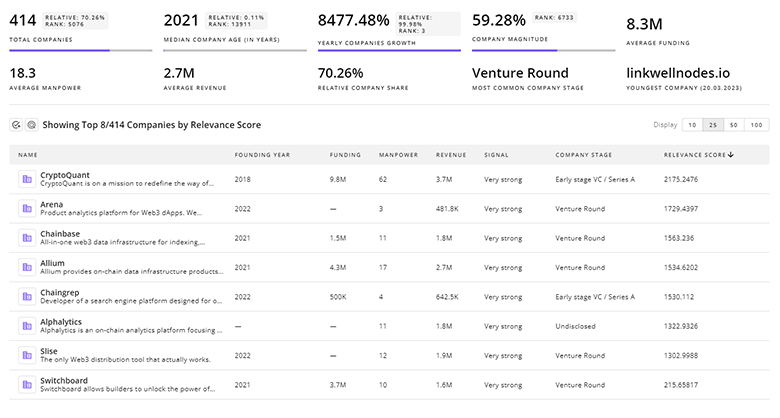
49.5K Space Technologies Companies
Discover Space Technologies Companies, their Funding, Manpower, Revenues, Stages, and much more
Space Technologies Investors
TrendFeedr’s Investors tool provides an extensive overview of 17.6K Space Technologies investors and their activities. By analyzing funding rounds and market trends, this tool equips you with the knowledge to make strategic investment decisions in the Space Technologies sector.
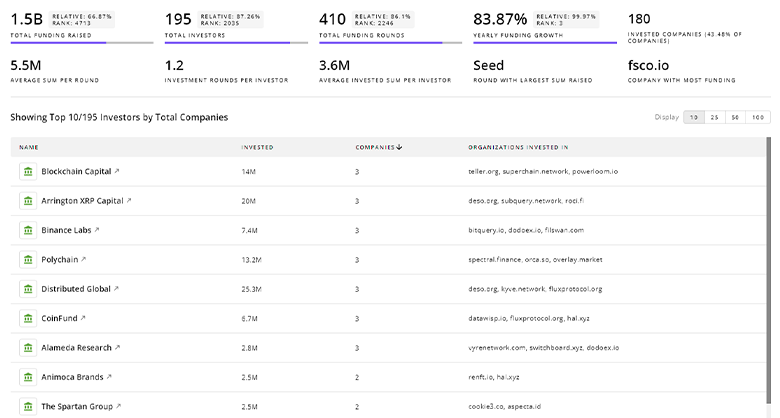
17.6K Space Technologies Investors
Discover Space Technologies Investors, Funding Rounds, Invested Amounts, and Funding Growth
Space Technologies News
Explore the evolution and current state of Space Technologies with TrendFeedr’s News feature. Access 253.8K Space Technologies articles that provide comprehensive insights into market trends and technological advancements.

253.8K Space Technologies News Articles
Discover Latest Space Technologies Articles, News Magnitude, Publication Propagation, Yearly Growth, and Strongest Publications
Executive Summary
Investment, IP and operational scale now determine who captures value in space technologies. Businesses should treat the market as service-first: move from selling hardware to offering integrated, subscription-style operational capabilities (SSA, OSAM, data products). Prioritize AI-enabled autonomy, proven in-orbit demonstrations, and regulatory alignment for STM and spectrum to secure long-term contracts with governments and large commercial operators. Companies that combine mission-critical systems engineering with software-driven, repeatable revenue models will achieve the margin profile and customer stickiness required to lead as the sector grows.
We're looking to collaborate with knowledgeable insiders to enhance our analysis of trends and tech. Join us!







